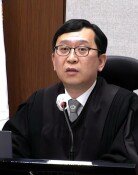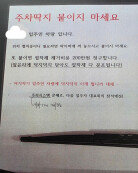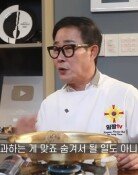Study Examines Life After Politics
Study Examines Life After Politics
Posted May. 02, 2006 03:00,
On a spring evening with dusk was gathering, stepping into a container about 1.5 pyeong in size gave me a chill as if it were winter.
The container located on the back street of Samseon Elementary School Samseon-dong, Seongbuk-gu, Seoul, only held an electric blanket to keep it warm. There was no bathroom. An old couple living in this container use the bathroom owned by their neighbor who also live alone. The kitchen is between their container and entrance stairway. They draw water from their neighbor.
The old person living in the container has a wide range of careers, a four-term lawmaker (6th, 7th, 9th, and 10th), the vice president of New Democratic Party, the vice president of the Peace and Democracy Party, up to the supreme council member of the Unification National Party. He is the former lawmaker Park Yeong-rok.
He was regarded as the most uncompromising lawmaker among the opposition parties against the military regime while he was a lawmaker. After his resignation, he once formed a civil organization and worked actively. However, he couldnt afford to pay the office rent, and even social organizations that had promised support to him started to leave. Park couldnt pay the rent and his 35-pyeong house in Samseon-dong in which he had lived for nearly 40 years in March 2003 was put up for public sale. As a result, he bought a container with the rest of his money, two million won.
There were many in the opposition parties who made compromises with the administration and made profits from it. But I was sick of it. One day looking back on them, I found out that I was at a standstill while they came into power, and the world has changed a lot for me,
To make matters worse, his second son who failed in his own business killed himself in September 2004, saying, Im sorry for not being filial to my parents and giving you so much trouble, His first son, who was deported with his father in the early 1980s under the military government, fell into debt after running a business in Wonju, Gangwon Province.
Mr. Parks dire poverty fall under a kind of severe categories but we can easily find former lawmakers who live in the situation as poor as he does. Why do they face these situations? What are desirable lives and cultures for former lawmakers?
To resolve these doubts, this paper and Jeon Yong-ju (professor of Dong-Eui University, the head of the Institute for Election and Policy) carried out a survey on how former lawmakers live economically and socially over two months from March to April. Out of 800 to 900 lawmakers, 317 were listed for the survey excluding those who live abroad, have their address unknown, or refused to respond. The survey was conducted based on phone calls or in-person interviews.
This is the first survey on former lawmakers livelihoods conducted by local academies and the media.
From the results of the survey, the number of former lawmakers living in normal conditions is shallow and the bipolarization of their financial conditions is extreme.
Two hundred and four respondents, or 64.4 percent among the total number, have incomes not exceeding three million won. Their average monthly income is 1.01 million won, which includes pension benefits of one million won, which are allocated those over 60. Those who are not eligible for receiving pension benefits have an income not exceeding one million one. The number reaches 102, or 32.2 percent.
Meanwhile, the number of former lawmakers who have an income of more than three million won per month is 110, or 34.7 percent. Their average income per month was computed at 4.97 million won. The average monthly income was 2.25 million won among the total respondents. Three people, or 0.9 percent, refused to display their monthly income.
The number of former lawmaker whose property is less than 500 million won is 168, or 53 percent, and their average properties are 190 million won. The number of holders with more than 500 billion is 138, or 40.2 percent, and their average properties are 1.18 billion. The total average properties of the respondents are 610 million won.
Out of 10 people, six, or 60.3 percent, said that their former career as a lawmaker helps them to take part in social and economic activities. Among them, some 80 percent said that the title former lawmaker helped their living for over 10 years after resignation from the political position.
The survey displayed whether former lawmakers are granted the privileges of their former post, the big gap in which party, such as the ruling party or the opposition parties, they belonged to, or which National Assembly standing committee they were in during their service. The research showed that former lawmakers from the ruling party and Construction and Transportation Committee are granted more privileges than those who were in the opposition parties and other parts in the National Assembly standing committees.
Out of the total numbers, 66.6 percent gave a low grade to current lawmakers compared to their past terms.
Yonsei University professor Mo Jong-rin said, Those who bet their lives on politics from their youth usually live with low incomes relatively after their resignations and couldnt reinforce their past career as lawmaker activities effectively due to a lack of professionalism, while those who built their professionalism in a variety of fields become a lawmaker in a bid to serve the government.
Sung-Won Park swpark@donga.com







